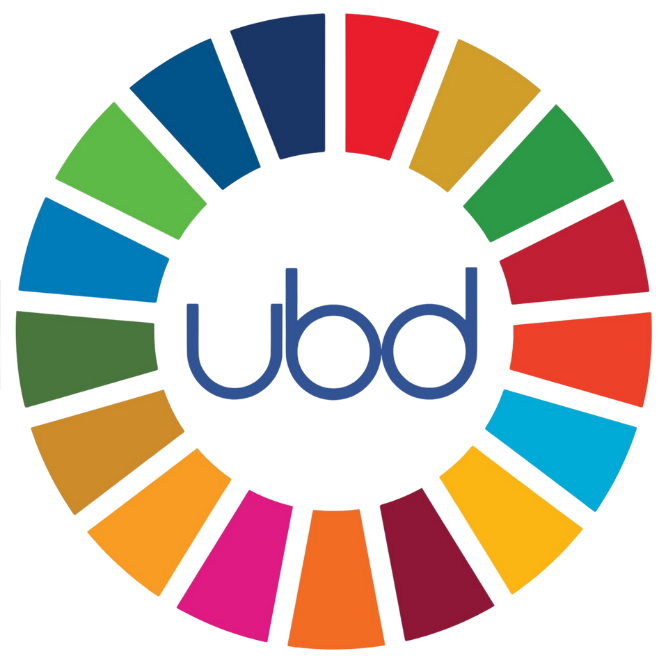
Sustainable Stewardship through Visionary Governance
Universiti Brunei Darussalam (UBD) is dedicated to embedding sustainability into its operations and governance, a key pillar of its Sustainability Masterplan. UBD actively promotes resource efficiency, energy-saving measures, and waste reduction across campus operations. Governance structures, including dedicated committees and policies, ensure accountability and prioritise sustainability in decision-making. Through these efforts, UBD aims to align with both national and global sustainability goals for lasting impact.
- UBD Sustainability Masterplan
- Sustainable Business Operation
- Supporting the Sustainable Development Goals (SDGs) through Online Management Systems
- Sustainable Procurement
- Sustainable Investment
- Sustainability Governance and Reporting
- Reduced Inequalities
- University Principles on Corruption and Bribery
- Healthy University Roadmap
UBD Sustainability Masterplan
Launches in August 2024, UBD’s Sustainability Masterplan integrates sustainability across all aspects of university operations and aligns with national and global goals. It focuses on five key pillars:

1. Driving Innovation through Sustainability Research
Encouraging interdisciplinary research and innovation to address sustainability challenges

2. Cultivating Sustainability Champions through Transformative Education
Embedding sustainability into the curriculum to educate future leaders on environmental, economic and social stewardship

3. Futuring Sustainability through Green Campus
Fostering a sustainable, eco-friendly campus through energy-efficient technologies, sustainable building practices, and the creation of green spaces for a low environmental impact and healthy community

4. Sustainable Stewardship through Visionary Governance
Implementing energy efficiency, waste reduction, and responsible resource management practices for a long lasting sustainable impact

5. Empowering Sustainable and Resilient Communities through Engagement and Partnership
Engaging the community through awareness campaigns and partnerships to promote sustainability
This masterplan demonstrates UBD’s commitment to building a sustainable future through education, research, campus practices and community outreach, fostering a culture of sustainability that prepares future leaders to address global challenges.
Sustainable Business Operation
As a public university, Universiti Brunei Darussalam (UBD) adheres to the Government Financial Regulation to ensure it meets compliance requirement and maintain transparency and accountability throughout its operation. Furthermore, UBD aligns its campus operations and initiatives with the Brunei Climate Change Office’s Green Protocol, in support of the national effort to combat climate change and promote environmental sustainability.
- Low Waste Business Operation
Reduced paper usage: The university is committed to minimising its environmental impact by significantly reducing printing and paper usage. This has been achieved through the implementation of digital systems for management and administration, including the Online Admissions System (OASys), Research Management System (ReMS), and the adoption of online meeting document repositories.
- Management of Sustainability Events
From 2024 with the launch of the UBD Sustainability Masterplan, conscious and collective efforts have been made to create awareness and drive the adaptation to SDG-supporting lifestyle changes amongst the university community at the events organised by the university, such as the reduction of the use of plastic water bottles at meetings and events and the use of paper packaging.
- Tree Planting
UBD has launched several significant tree planting initiatives aimed at promoting sustainability and environmental conservation. Recently, in collaboration with Dynamik Technologies, UBD launched the “Adopt-A-Tree” program at the UBD Botanical Research Centre. This initiative offers a unique opportunity to engage like0minded individuals and organisations i meaningful collaboration, allowing them to adopt and care for trees. By participating, they can contribute to the university’s efforts to enhance biodiversity, promote green spaces, and demonstrate a shared commitment to combating climate change and fostering a greener future for all.
Supporting the Sustainable Development Goals (SDGs) through Online Management Systems
GIS: A Catalyst for Sustainable Development
The GenNEXT Information System (GIS) is a groundbreaking online platform developed by UBD in 2019 to streamline and enhance the academic journey of its students. By providing a comprehensive system for managing various aspects of student life, from admissions to graduation, GIS is not only improving efficiency but also contributing significantly to the achievement of the Sustainable Development Goals (SDGs)
OASys: A Seamless Admission Process
In addition to GIS, UBD utiises the Online Admission System (OASys) to facilitate the admissions process for prospective students. OASys provides a convenient and efficient platform for applicants to submit their applications, track the status of their application, and receive admission decisions online. OASys plays a crucial role in supporting the Sustainable Development Goals by promoting equitable access to education, reducing administrative burdens, and fostering a more inclusive and efficient admission process.
By combining GIS and OASys, UBD offers a comprehensive and efficient system for managing the entire student lifecycle, from admissions to graduation. This integrated approach contributes to the University’s commitment to providing a high-quality and accessible education for its students.
Canvas: Enhancing Education and Sustainability at UBD
Canvas, a clous based learning Management System (LMS), is used at UBD to streamline course management, enhance communication, and support both in-person and online learning. It allows instructors to organise courses, share materials, assign and grade work, and engage with students through discussion boards and messaging tools. By centralising course resources and enabling seamless interaction, Canvas not only contributes to a more flexible, accessible, and efficient learning environment but also supports sustainability efforts by reducing the need for paper-based materials, aligning with UBD’s goals of promoting eco-friendly and sustainable education practices.
myUBD: A Comprehensive University Platform
MyUBD serves as a comprehensive online platform that houses vital information and updates on university processes and regulations. This centralised platform provides a convenient and accessible resource for both students and staff, streamlining communication and enhancing efficiency. myUBD hosts the student portal which offers a wealth of information specifically tailored to students ‘needs and the staff portal which provides a dedicated space for staff to access information related to their roles and responsibilities. myUBD also acts as an e-document repository for university meetings
Supporting the SDGs
These online management systems are making a substantial contribution to several SDGs, including:
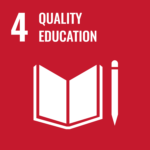
SDG 4: Quality Education
These online platforms enhance the quality of education by providing user-friendly and efficient tools for students and staff to access academic information and services. By streamlining administrative processes and reducing paperwork, the platforms minimise administrative burdens, enabling the university to focus more on delivering high-quality education
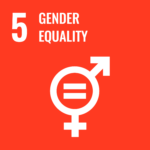
SDG 5: Gender Equality
The systems can help to promote gender equality by ensuring that all student shave equal access to academic resources and opportunities, regardless of their gender. OASys ensures a transparent and unbiased admission process, reducing the potential for gender-based discrimination.
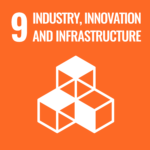
SDG 9: Industry, Innovation, and Infrastructure
The systems represent innovative technological solutions that can improve the efficiency and effectiveness of higher education institutions. The systems can reduce administrative costs and improve resource allocation, allowing universities to invest more in education and research.
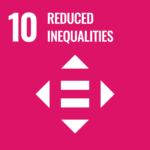
SDG 10: Reduced Inequalities
By providing a centralised and accessible platform for students and staff, the system can help to reduce inequalities based on socioeconomic status, geographic location, or other factors, in access to education and research opportunities.
Sustainable Procurement
Our university is committed to conducting all procurement activities with fairness, transparency, competitiveness, integrity, and efficiency, in accordance with the Financial Regulations, 2022 and its subsequent revision. We recognise that procurement is essential for ensuring financial responsibility, value for money, and incorporating Environmental, Social, and Governance (ESG) considerations.
Strengthening Procurement Governance and Transparency
We ensure that procurement is conducted in a transparent, competitive, and accountable manner, as required by Regulation 14 (Conduct of Procurement), which mandates fair and just procurement practices.
Our approach:
• Promoting transparency by ensuring all stakeholders understand the expectations, guidelines of our procurement processes and their roles and responsibilities.
• Implementing rigorous oversight to prevent fraud, inefficiency, and non-compliance.
Upholding Integrity and Ethical Procurement
We uphold the highest ethical standards in procurement, ensuring compliance with Regulation 21 (Non-Compliance with Procurement Procedures), which holds officers accountable for procurement-related losses resulting from neglect or fault and may subject them to a surcharge.
Our approach:
• Enforcing anti-bribery and anti-corruption measures to uphold ethical governance.
• Maintaining a strict no-gift and hospitality policy to prevent conflicts of interest.
• Ensuring that all procurement decisions are made based on merit and value for money.
Enhancing Procurement Efficiency and Value for Money
Under Regulations 17 (Quotation Committees), the responsible team will handle the opening, receiving, reviewing, and evaluating tenders for works, services, and the supply of public stores to the Government, based on their value while ensuring effective financial management and adherence to established guidelines.
Our approach:
• Conducting thorough supplier evaluations to ensure quality, cost-effectiveness, and timely delivery.
• Where appropriate, considering local suppliers and SMEs to support economic development.
Managing Procurement Exemptions with Accountability
Under Regulation 19 (Exemption from Tender Procedure) and Regulation 20 (Exemption from Quotation Procedure), exemptions may be granted when the standard tender or quotation process is deemed unsuitable due to the nature of the goods or services required. Such exemptions require formal approval from the Chairman of the State Tender Board, Mini Tender Board, or the Quotation Committee of the relevant department.
Our approach:
• Facilitating exemptions where standard procedures are not suitable, ensuring procurement remains efficient and responsive.
• Maintaining accountability by requiring formal approval from the relevant procurement authorities.
• Ensuring that all exemptions align with regulatory guidelines and good governance practices.
Responsible Management of Public Resources
In compliance with Regulations 42-43 (Public Stores Verification & Deficiency Management), we emphasise minimising waste, optimising resource use, and ensuring cost-effective procurement that aligns with environmental and economic sustainability.
Our approach:
• Carrying out periodic stock checks to ensure the proper use and management of public assets.
• Prioritising cost-effective procurement that considers durability, energy efficiency, and long-term value.
• Reducing waste and environmental impact by reusing, repurposing, and optimising existing resources.
For more information related to procurement, please visit the following links:
Sustainable Investment
- Purpose
This framework outlines the university’s approach to aligning resource allocation, strategic partnerships, and investment decisions with Brunei Darussalam’s Economic Blueprint (2020). It provides a solid foundation for responsible and forward-looking investment practices that support national economic transformation under Wawasan Brunei 2035.
- Guiding Principles
The university is committed to the following principles, which reflect the aspirations of the Economic Blueprint:
- Sustainable Growth and Economic Diversification
Investment decisions are driven by the need to diversify Brunei’s economy, foster innovation, and support enterprise development, particularly in key sectors like education, technology, food, and services. (Aspiration 1 & 2) - Investment in Human Capital
We focus on upskilling infrastructure, lifelong learning platforms, and programs to equip graduates for future workforce needs and national priorities. (Aspiration 2) - Environmental Stewardship
Our investments aim to minimise environmental impact, promote green growth, and demonstrate our commitment to sustainable development and climate responsibility. (Aspiration 4) - Enabling Infrastructure
We prioritise investments in smart, inclusive, and digitally-enabled infrastructure that enhances learning, operational efficiency, and resilience. (Aspiration 5) - Strategic Partnerships
In line with the Blueprint’s call for a globally connected economy, the university seeks partnerships that promote research, capacity-building, and regional collaboration. (Aspiration 1 & 3) - Good Governance and Accountability
All resource and investment decisions are made with transparency, fairness, and in line with financial and governance regulations and standards. (Aspiration 6)
- Areas of Strategic Investment
The following areas are key to ensuring the university’s alignment with Brunei’s Economic Blueprint, fostering long-term sustainability, innovation, and development:
Area of Investment | Alignment with Economic Blueprint |
Academic and Research Initiatives | Focus on innovation, entrepreneurship, digital literacy, and technology adoption. (Aspiration 1 & 2) |
Workforce and Staff Development | Skills upgrading, leadership training, and inclusive talent development. (Aspiration 2) |
Digitalisation and E-learning Efforts | Investment in campus networks, digital platforms, and e-learning tools to enhance the university’s role in 21st-century education. (Aspiration 5) |
Industry and Community Partnerships | Knowledge transfer, commercialisation, and national capacity-building initiatives that enhance research and regional collaboration. (Aspiration 1 & 3) |
Campus Development Projects | Green buildings, renewable energy use, and smart infrastructure that align with sustainable development goals. (Aspiration 4 & 5) |
Operational Sustainability | Resource efficiency, waste reduction, and long-term cost-effectiveness in university operations. (Aspiration 4 & 6) |
For More Information:
Sustainability Governance and Reporting
The establishment of the university SDG committee marks a pivotal moment in the university’s journey towards embedding sustainability into all aspects of the university’s functions. Comprising 15 members, including esteemed leaders from faculties, research centres, and administrative offices, alongside representation from the national SDG coordination committee, the committee’s leadership is entrusted to the Assistant Vice Chancellor of Research, Innovation and Sustainability.
The inclusion of senior figures from diverse university offices ensures that sustainability becomes deeply ingrained in teaching, research, and day-to-day functions, spanning across disciplinary boundaries. This collaborative, multidisciplinary approach is fundamental for tackling the intricate challenges posed by sustainability, fostering innovative solutions through holistic problem-solving.
Moreover, the participation of members from the Secretariat to the Special National Coordination Committee on SDGs Brunei Darussalam underscores the university’s commitment to harmonising its sustainability endeavours with national priorities. This symbiotic relationship facilitates invaluable exchanges of knowledge, resources, and support, nurturing a mutually reinforcing partnership between the university and the broader national sustainability framework.
In essence, the formation of the university SDG committee represents a proactive declaration of the institution’s dedication to sustainability. It serves as a testament to its resolve in spearheading sustainable development internally while synergistically aligning with national objectives, thereby paving the way for a more resilient and responsible future.
UBD is committed to responsible governance and transparency in sustainability. UBD aims to regularly report our sustainability initiatives and progress through our website, newsletter, and social media platforms, ensuring accountability and demonstrating our dedication to effective sustainability practices.
Reduced Inequalities
Our approach to Equality, Diversity, and Inclusion (EDI) is guided by the Special Education Framework Supplement to the Special Education Policy Guidelines 1997, as established by the Ministry of Education (MOE). We uphold the principles outlined in this policy, ensuring that individuals of all backgrounds, abilities, and identities are supported and valued within our institution.
University Principles on Corruption and Bribery
We are committed to the highest standards of integrity and ethical conduct in all university activities, ensuring strict compliance with relevant laws. UBD strictly adheres to the country’s anti-corruption laws and any subsequent revisions. All staff are expected to act with integrity, avoid any form of bribery or corruption, and remain fully aware of the serious legal consequences of such actions.
For more information:
- Prevention of Corruption Act (Chapter 131)
- What is Corruption? – Anti-Corruption Bureau
- General Orders – Public Service Department (JPA)
- Laws of Brunei Chapter 22 Penal Code

